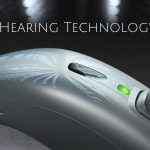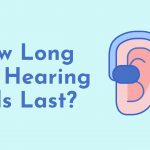Quality hearing aids don’t come cheap, but they should be treated more like an investment in your overall health, and from this perspective, you are almost guaranteed to make a decent return on them if used properly. But to extract the best return on your investment, it also makes sense to make them last as long as possible. That’s where regular hearing aid maintenance comes in.
Like with all sensitive electronic devices, hearing aids need regular maintenance and care to optimize performance and prolong their use-life. To that end, here’s a general maintenance guide for your hearing aids.
Store Them Properly
Think carefully about how you store your hearing aids to ensure they are not damaged.
- Keep them safe. Place them carefully in a padded container. Store this container out of children and pets’ reach, as they can become choking hazards in the wrong hands.
- Keep them dry. Hearing aids are susceptible to moisture above all else. Keep your hearing aids in a cool, dry place. Try not to take your hearing aids to the bathroom, as this is the most humid place in your home. Ideally, you want to place your hearing aid in a dry box overnight.
- Keep them cool. You’ll want to avoid keeping your hearing aids in the car, for instance, where temperatures can rise very high and damage your aids as a result.
Clean Them Regularly
Hearing aids could be exposed to dirt, dust, ear wax, or moisture with regular use. Any of these substances can block your hearing aid or impair its operation, so you’re going to have to find ways to keep them clean.
The most important thing you can do is clean them every day. Your hearing aids will last much longer with regular cleaning, and you’ll need fewer repairs.
- Wipe them with a soft, dry cloth.
- Check for any earwax accumulation and use a cleaning pick to clear any earwax out.
- Clean the battery contacts.
- Clean the tubing in warm water once a week and allow it to air dry before reattaching it to your hearing aids.
Schedule Regular Professional Cleanings
Schedule regular appointments with a hearing specialist to arrange cleanings to ensure your hearing aid performs at its best. If you find that you cannot remove dirt and earwax from your device between scheduled cleanings, bring them in for professional treatment. By doing so, you will prevent unintentional damage to your device.
Avoid dropping your hearing aid
New hearing aids are more robust than ever, but they are still vulnerable to damage from a high-impact fall. Ensure you are seated on your couch when removing or putting them on to avoid dropping your hearing aid on hard surfaces.
Try these fixes when you encounter issues
If you have no sound:
- Check to ensure that your device has a new battery and replace the battery periodically as needed.
- It may be clogged with wax or dirt. If there is a wax guard on your hearing aid, consider replacing it with a new one. Clean your microphone and receiver (speaker) if you have a cleaning tool.
If the sound is distorted:
- The battery may be running low, and it may need to be replaced.
- Otherwise, the instrument is probably damaged or faulty. See your hearing specialist.
If you experience feedback or whistling:
Make sure the hearing aid is inserted into the ear canal properly. You may have a blockage of wax or debris in your ear canal if it is still generating feedback, or the device may not be fitting correctly.
Seek professional repairs
It is best to obtain professional help if your hearing aids have encountered issues you can’t fix. Many hearing aid practices provide repair services too. Some can be done in-house while you wait, while others need to be sent to the manufacturer.
With these essential maintenance tips, you should be able to continue using your hearing aids for many years to come. Do not hesitate to contact us for assistance if you have any needs related to your hearing aids.






